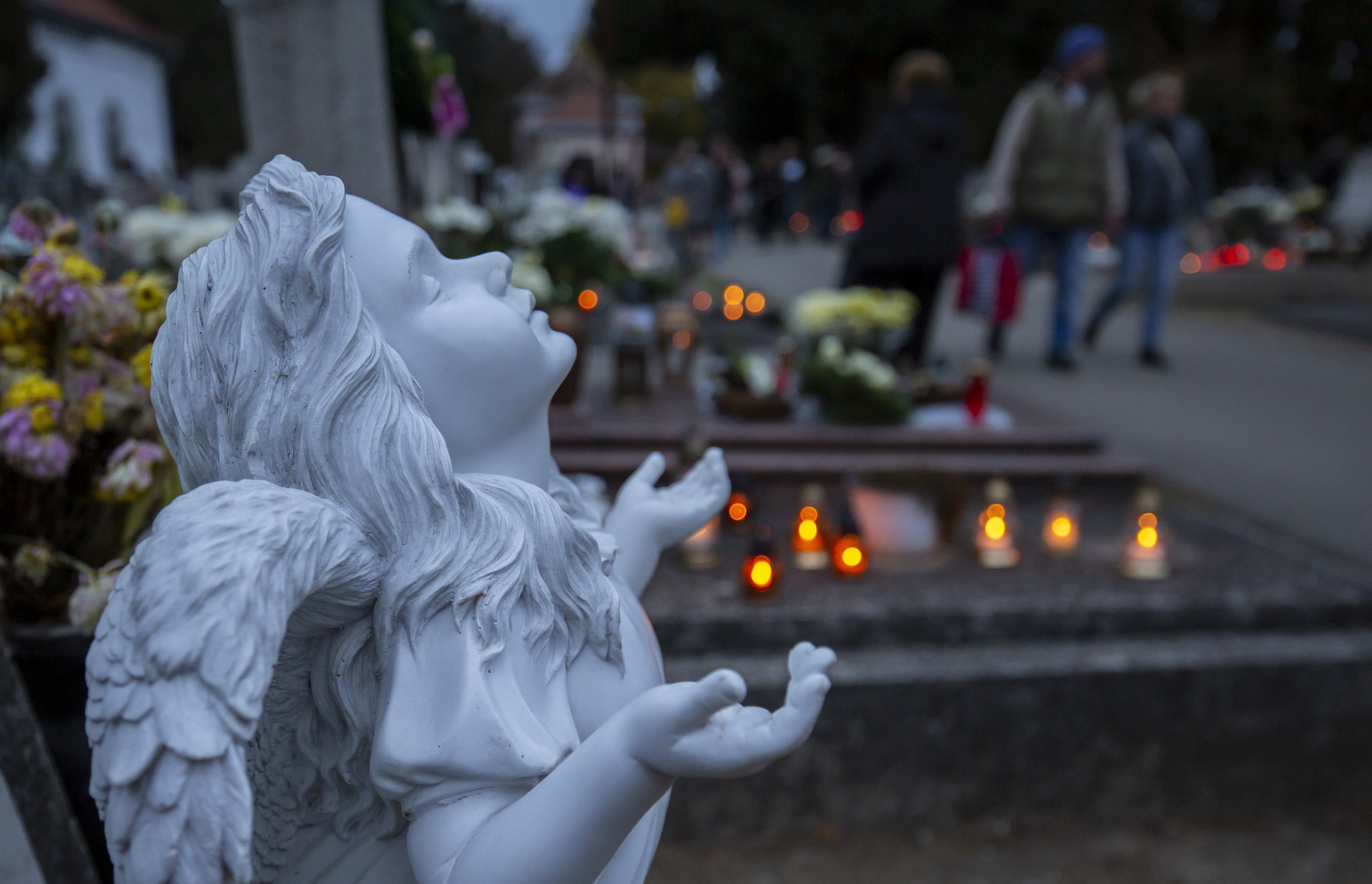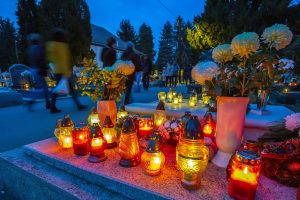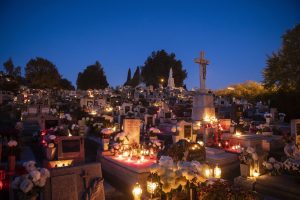
In Hungary, All Saints’ Day is celebrated on 1 November, followed by the All Souls’ Day on 2 November. Unlike in Anglo-Saxon culture, Hungarians do not celebrate Halloween, although recently there have been more and more initiatives to do so among young people.
In this article, we present the feast of All Saints, the feast of the saints whose names are not commemorated in the calendar. This day is a public holiday in Hungary since 2000.
The feast first appeared as a day of commemoration in 741 under Pope Gregory III, and was officially recognized by the Catholic Church in the 9th century.
Today, All Saints’ Day has become obligatory for believers, and the Church considers it a day on which the living and the dead are united in mysterious communion.
Later, in the 20th century, All Saints’ Day became the eve of the All Souls’ Day. On the night between All Saints’ Day and the All Souls’ Day, it is popular belief that the dead say mass in church. According to lore, if someone happens to wander into the church after hearing the bells or seeing the lights, they will notice that the dead are saying mass. The person tries to run away, but the dead tear off their clothes or tear the garment they left behind. The person will soon die, because the living must not see the dead.

Huge crowds visit the cemeteries in Hungary on All Saints’ Day to remember their dead
On 1 November, it is still customary to clean graves, decorate them and light candles in memory of the dead. The light of the candle symbolizes eternal light, and the Catholic Church’s ritual of reciting the Litany of All Saints and blessing new grave-sites at the great cross of cemeteries is still followed today.
According to popular belief, the dead visit home at this time, so it is customary in many places to lay bread, salt and water on the table for them.
In Hungary, on the days around 1 November, many people visit cemeteries, where a special traffic order is introduced and cemeteries are open longer to cope with the increased crowds. The police are also present at cemeteries to ensure a safe environment for people, as there is an increase in crime in the area.

All Saints’ Day is not to be confused with the All Souls’ Day, which since 998 has been observed by the Catholic Church on the following day, 2 November, for the faithful who have died but not yet received salvation
According to police, car break-ins and bike thefts are more common around cemeteries, and criminals are not afraid to steal flowers, wreaths or a bag left unattended from graves. For this reason, police are asking Hungarians to take extra care of their valuables.
The National Heritage Institute, an institution of the Prime Minister’s Office, awaits the commemorators with a festive mass and folk music performances on 1 November at the Fiumei Road Cemetery in Budapest.
Featured photos via MTI/Varga György, MTI/Komka Péter